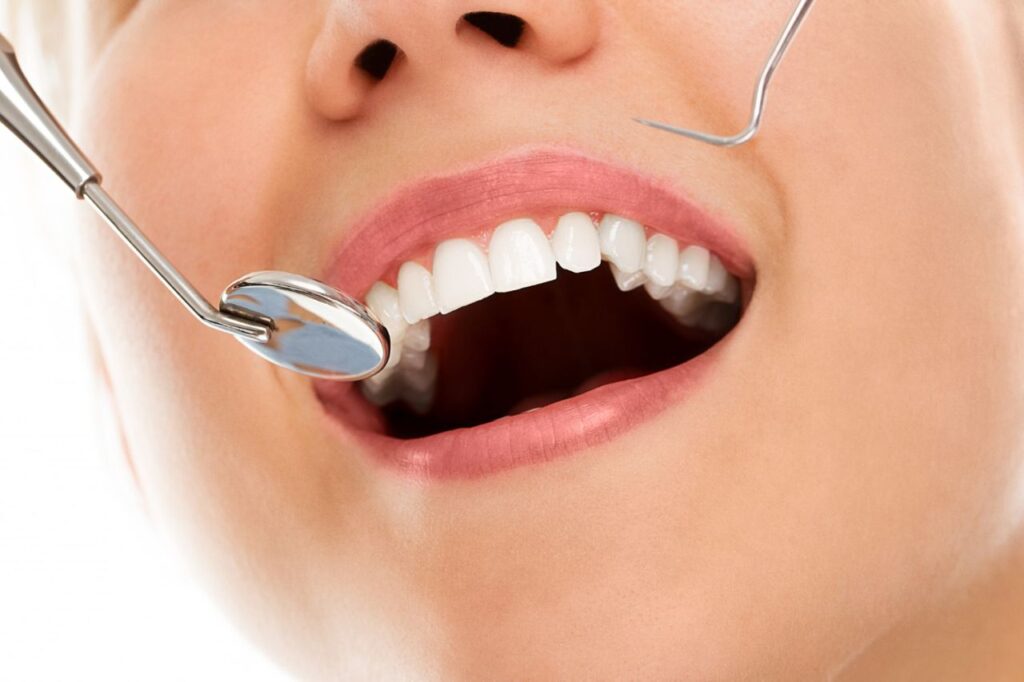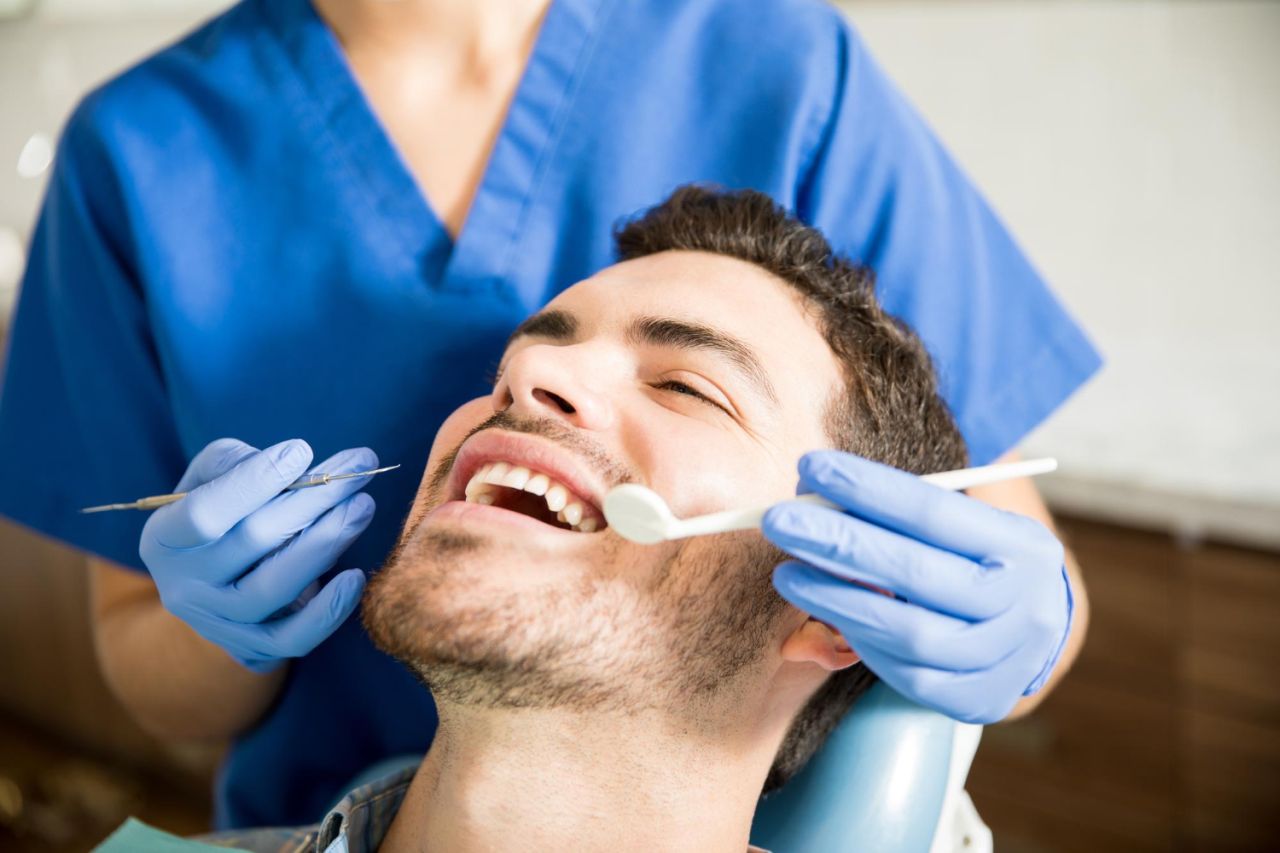A Problematic Set Of Molars: Wisdom Teeth

There are few things more jarring than the pain that comes with wisdom teeth. However, a little bit of research will let you know just how common a problem it is – around 85% of people need to have their wisdom teeth removed in some way or form!
It’s understandable why so many of us dread the idea that our own molars may eventually become problematic.
However, knowledge is power, and understanding what this condition entails and when you should be worried about it can help empower you when facing your own troublesome set of molars.
Wisdom teeth can be a real problem for many people. As the last of the molars to grow close to adulthood, these teeth can create some intense dental issues that need to be addressed.
In this blog post, we’ll talk about wisdom teeth and why they tend to cause so many problems—plus how best to treat them if necessary.
From risks associated with impacted wisdom teeth surgery to finding ways to alleviate discomfort at home, this post covers everything related to those pesky backmost molars.
We hope it helps you find relief if needed and provides insight into warding off major dental complications in the future!
Let’s get started!
What Are Wisdom Teeth?
The four adult teeth that can be found in the very back, top and bottom regions of the mouth are called wisdom teeth (third set of molars).
Most individuals experience the emergence of their wisdom teeth in their teenage years or early twenties. When they come in properly, they normally don’t create any issues and can be left in the mouth without removal.
In many other instances, wisdom teeth don’t have the space necessary for them to develop in a healthy way. As a direct consequence of this, they either develop at a crooked inclination or continue to become stuck (impacted) in the jaws or gum tissue.
When wisdom teeth become impacted or misplaced, they are more challenging to keep clean and frequently cause excruciating and incapacitating problems.
Therefore, it might be necessary to surgically remove wisdom teeth to repair misplaced wisdom teeth or impacted wisdom teeth.
This is a frequent oral surgery operation that can lessen the incidence of dental issues connected with wisdom teeth and is performed to remove wisdom teeth.
1. Misplaced Wisdom Teeth
Wisdom teeth that are out of place might be placed horizontally or at an inclination either towards or far from the other teeth in the mouth.
This malposition of the teeth may lead to harm to the other teeth, distress in the jaw or nerves, and other symptomatology. In addition, improper alignment might make it more challenging to wash these teeth, which could result in the accumulation of plaque and other detritus.
This, in turn, may result in dental caries or infections of the teeth and the tissues that surround them.
2. Impacted Wisdom Teeth
Wisdom teeth that are impacted are rather frequent and develop for one of two reasons: either the wisdom teeth didn’t completely emerge, or they continue to be caught in the jaw or the adjacent soft tissue.
When a wisdom tooth only partly erupts, germs have immediate access to the region around the tooth, which can lead to an infection if the germs penetrate the region.
This could occasionally result in a more widespread disease as well as severe inflammation and rigidity in the jaw. In most cases, teeth that have just partly emerged are at an increased risk for developing cavities and gum disease.
Signs of Wisdom Teeth That Are Impacted or Out of Alignment
Some individuals don’t suffer any signs despite having wisdom teeth that are crooked or impacted. For people who are affected by it, the main signs include the following:
- Face edema that causes excruciating pain
- Tenseness in the jaws and face
- Food that gets caught in between the wisdom teeth
- Periodontal disease (disease of the gums)
- Caries of the teeth
- Accidental injury to the patient’s other teeth or nerves
Oral Evaluation in Preparation for the Removal of Wisdom Teeth
Your dentist will be able to determine the location of your wisdom teeth through an oral exam and x-rays of the mouth. Based on this information, they will be able to determine whether or not there are any difficulties currently or in the near future.
Studies have demonstrated that timely examination and treatment result in a better prognosis for the patient. Therefore, patients are typically examined for the first time by their orthodontist, dentist, or an oral and maxillofacial surgeon while they are in the middle of their adolescent years.
To ensure the patient’s ultimate comfort, adequate anaesthetic is administered during every outpatient surgical procedure.
Medical professionals have the necessary education, credentials, and a wealth of knowledge to administer different kinds of anaesthesia to individuals.
When Should You Have Your Wisdom Teeth Removed?
The orthodontist evaluates the wisdom teeth to see whether or not they have emerged, how simple it is to cleanse them, and whether or not they fit comfortably in the mouth.
Because of development, the size of the human jaw has decreased over time, resulting in there being frequently not enough space for the emergence of wisdom teeth.
We suggest getting your wisdom teeth extracted if it’s challenging for you to maintain the cleanliness or if they do not fit in your mouth properly.
Even if your wisdom teeth haven’t yet come in or caused any problems, it is typically a good idea to get them extracted anyhow. It is simpler to extract wisdom teeth from people who are 25 years old as opposed to those who are 55 years old.
If you have a wisdom tooth in your jaw, it might become inflamed in the future.

As we become older, our bones’ density increases and our teeth’ roots may lengthen, which can cause them to wind around a sensory nerve located in the lower jaw.
Additionally, younger patients have a better chance of making a speedy recovery after having their wisdom teeth out.
What Are The Consequences Of Failing To Have My Third (Wisdom) Teeth Extracted When I Was Younger?
The roots of the wisdom teeth continue to grow longer, and the jaw bone continues to become denser as the teeth grow.
Therefore, when it becomes necessary to extract impacted wisdom teeth in a person in their thirties, forties, or even later in life, the postoperative course can be protracted, and there is a larger risk of complications.
When dealing with an individual of a younger age, the treatment of these consequences is typically more challenging and less expected.
It’s possible that healing will take longer, and there’s also a higher likelihood of infection.
If you do not have your impacted wisdom teeth extracted when you are a teenager or in your early twenties and they are entirely impacted in bone, it might be in your best interest to wait until a localised issue (such as the creation of a cyst or the progression of gum disease and bone loss) manifests itself before having them extracted.
If you are treated in your teens or early 20s, you will generally recover more quickly, experience a more predictable recovery, and have fewer issues.
Examination and Treatment of the Wisdom Teeth
Oral surgeons suggest that everyone have a full review of their third molars with an oral professional between the ages of 18 and 21.
This is because of the complicated and sheer unpredictability of diseases that are associated with wisdom teeth. Specifically, this is to:
- It is important to keep a record of the present condition of the wisdom teeth, including their placement, growth, and manifestation of any wisdom tooth-related disorders.
- Address the available therapeutic approaches, which also involve the extraction of the wisdom teeth surgically or care over the long term.
The oral surgeon will address suitable sanitary practices, how to spot symptoms and signs of illness, and potential dangers to the patient if the management of wisdom teeth is chosen rather than the surgical intervention of the teeth.
It is recommended that individuals taking the wisdom tooth training session see their oral expert anywhere from once every two years up to once every five years.
Individuals can undergo surgical extraction of their wisdom teeth if they feel this is in their best interest.
The Procedure for Extracting the Third Molar Is Determined By the Following
The procedure for removing wisdom teeth is contingent on the following factors:
- Form of the root system
- Level of eruption
- The location of the tooth in question
- The state of the crown is the portion of the tooth that is accessible to the naked eye.
Even if current X-rays are accessible, the mouth is typically X-rayed well before extraction takes place.
The Method for Removing Wisdom Teeth
If the wisdom teeth have reached their maximum potential, the orthodontist can remove them. The orthodontist will begin by administering a local anaesthetic to the region surrounding the affected tooth in order to numb it.
The process may be quite fast and straightforward.
It’s possible that the jaws will be sore and inflamed, but the signs should start to subside in approximately twenty-four hours.
It is necessary to have a procedure in order to remove wisdom teeth if they haven’t completely emerged. Surgical extraction of a single wisdom tooth typically takes around thirty minutes, whereas extraction of all four teeth often takes one hour.
The healing process takes between three and seven days.
The procedure is often carried out under local anaesthesia, but a general anaesthetic might also be used in exceptional circumstances—such as when the individual is extremely frightened, for instance. There is also the possibility of calming pre-medication.
Before having their wisdom teeth removed, most people experience some level of anxiety.
So there is neither anything uncommon nor anything incorrect with having concerns over the operation.
Because of the enormous advancements that have been made in dental imaging technologies over the years, a doctor is now able to find wisdom teeth that have yet to emerge with greater precision in X-rays.
As a result, the removal of wisdom teeth is a technique that is often risk-free. In spite of this, careful planning is necessary.
What to Anticipate Before and After Wisdom Teeth Removal Surgery
1. Before The Procedure
Before the oral surgical operation, the care team will gather a full and detailed record of the patient’s medical history.
This will include an inventory of the person’s prescription treatments as well as any dietary supplements they may be taking.
This will allow the doctor to create a personalised care strategy customised to the patient’s unique medical requirements and objectives.
You will have a consultation with your oral surgeon to go through what to anticipate during the procedure, go over the many possibilities for anaesthetic, and get responses to any inquiries or worries you may have.
2. On the Day of the Operation
The removal of wisdom teeth typically requires around an hour and a half of surgical time.
3. After The Procedure
Because the procedure of removing wisdom teeth is done on an outpatient basis, individuals are able to be discharged and go home on the same day as the treatment.
After the procedure, individuals might be sent to a care unit to relax for a couple of hours if they were given a certain kind of anaesthetic. This decision is based on the type of anaesthetic that was used.
During their time spent recuperating, individuals can anticipate the following:
- Spotting or bleeding at the location of the extraction.
- Jaw ache or a throbbing sensation in the jaw
- A bruised appearance or puffiness of the cheeks
- To be instructed not to consume drinks containing alcohol, caffeine, or carbonation for the first twenty-four hours following surgery; to refrain from brushing or flossing teeth; to avoid eating items that require the use of a straw.
- Get some rest and refrain from intense exercise for the next few days.
After having their wisdom teeth out, individuals will receive detailed instructions from the care staff in order to facilitate the speediest and most pain-free healing imaginable.
Postoperative Care
The gum may be painful and uncomfortable after the treatment, just as it is after any other surgical removal or oral medical intervention.
When you leave the office, the dentist will provide you with guidelines for aftercare to help accelerate the recovery process and your recuperation.
In the event that you experience any postoperative discomfort or inflammation, your doctor may prescribe pain medicine and anti-inflammatory treatment for you.
Time required for recovery: While the exact amount of time required varies from individual to individual and depends on a variety of circumstances, in most cases, recovery takes between two and four days. Your particular circumstance, which your orthodontist will discuss, will determine the amount of time needed to recuperate.
If you’ve undergone dental surgery, you’ll most likely be left with a couple of absorbable sutures (also known as stitches).
Within a few days, this kind of suture will disintegrate on its own without any more intervention. Following surgery, it is not uncommon for patients to experience some bleeding; this is to be expected.
Hydrate yourself; throughout the next 24–72 hours, you will be required to slow down and consume a lot of liquids in order to prevent dehydration from setting in. Following the operation, you should wait a few days before drinking anything spicy.
Also, drinking with a straw is not a good idea since the suction movement may force the blood clot (also known as a dry socket) inside the tooth socket to become dislodged, leading to more difficulties.
Inflammation It is typical for the jaws or cheek to swell after surgery, but the inflammation should go down within a few days.
Painting inflammation can be reduced by placing a cold compress to the cheeks or jaws. Following surgery, it is not uncommon for patients to experience some bleeding; this is to be expected.
Consume only soft foods for the next several days and stay away from things that are either too firm or too harsh, such as nuts or chips.
Smoking and using other nicotine products should be avoided at all costs because doing so may result in a dry socket. An infection known as a dry socket results from the blood clot breaking loose and revealing the bone and nerves in the socket.
Rinsing your mouth with warm salt water numerous times a day can assist in reducing the amount of germs that are present there. However, it would be best if you refrained from washing your teeth for at least a day.
Advantages Of Wisdom Teeth Extraction
1. There Will Be Fewer Orthodontic Issues If There Is Less Crowding
It’s possible for your wisdom teeth to cause damage to the molars that are adjacent to them as they develop and eventually emerge.
In addition, if there isn’t enough room in the mouth for them, wisdom teeth can progressively cause alignment issues over the course of time as they force other teeth to be pushed out of the way.
Because of this, having your wisdom teeth extracted lowers the likelihood that you may need braces or other pricey kinds of dental procedures in the future to address the misalignment of your teeth.
In addition, if you have already undergone orthodontic treatment, having your wisdom teeth extracted lowers the risk that all of your efforts to improve your smile will be undone.

2. Avoid Causing Injury To Teeth That Are Close By
The pressure caused by wisdom teeth can weaken nearby teeth or cause them to lose their roots. This can also cause enamel to become ground down, putting adjacent teeth vulnerable to caries and bone loss. Furthermore, wisdom teeth alone are tough to access, making it challenging to cleanse them.
Wisdom teeth that have completely erupted and caused discomfort during their eruption are called impacted wisdom teeth.
These can make it nearly impossible to maintain a tidy environment. The extraction of your wisdom teeth may prevent you from needing more costly procedures such as root canals and fillings.
3. Reduce the Risk of Oral Illness & Inflammation
If you maintain your wisdom teeth for an extended period of time, you put yourself at risk for developing dental cavities and gum disease. Inflammatory response of the gums is a common side effect of having wisdom teeth that are impacted, and it may be resistant to treatment and very difficult to resolve.
Problems that spread beneath the gums can put pressure on the nerves or make their way into circulation. This can lead to a condition known as sepsis, a potentially life-threatening sickness affecting other parts of the body.
4. Pain Relief in the Orofacial Region
In addition to lowering one’s risk of developing caries and diseases, having one’s wisdom teeth removed can reduce one’s level of discomfort. The extraction of those pesky third molars makes it possible to alleviate pressure, reduce gum hypersensitivity, and ease tooth sensitivity. All three of these issues can be alleviated simultaneously. The pressure often causes chronic migraines that wisdom teeth exert. The result is an improvement in the health of the teeth as well as less limitations on the kinds of food and drink that can be consumed.
5. Reduce Your Risk of Developing Cysts, Tumors, and Jaw Disorders
It is possible for infected wisdom teeth to provide a breeding habitat for bacteria, which can then lead to the development of cysts or tumours in the jaw, which can result in significant joint pain in the jaw bone. Which in the long run will necessitate therapy for a TMJ issue.
